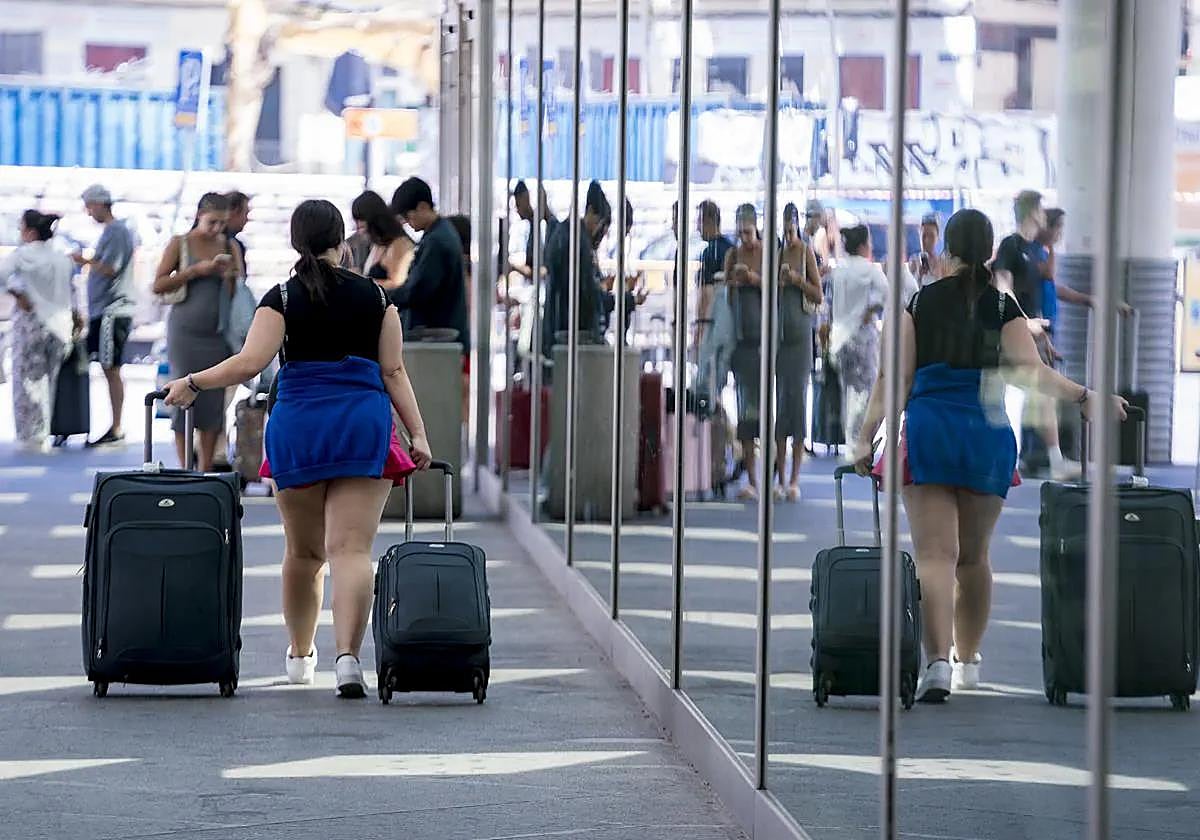Sustainable tourism in Spain: How to pack your holiday bags without damaging the planet
The tourism industry is set to return to pre-pandemic figures this year, however the boom does not come without its challenges
Raquel C. Pico
Monday, 19 August 2024, 20:36
If there is one word that connects with summer, it is holidays. These are the preferred months for disconnecting and, above all, for travelling. After a century of growth and democratisation, tourism has become one of the favourite leisure options for a large part of the population. But these trips are not without problems for the environment - socially, economically or environmentally - is it possible to travel in a more respectful way? Can an alternative be found in ecotourism?
Although the Covid-19 pandemic put a brake on travel, the recovery has been swift. According to latest data from the World Economic Forum, tourism is already returning to pre-pandemic levels. This year, it is expected to be as high as it was before the pandemic, even exceeding previous figures. The United States, Spain, Japan, France and Australia will lead the economic recovery.
However, the tourism recovery is not without its challenges. The Forum's 2024 global risks report identifies geopolitical uncertainty, economic fluctuations, inflation and extreme weather as the main challenges facing the tourism industry. It also points out the importance of ensuring that tourism growth goes hand in hand with the sustainability of the industry. The emissions it generates or the fact that it is a highly seasonal industry - which overburdens destinations, but also creates temporary employment - makes things complex.
So is tourism compatible with sustainability? "Of course it's compatible," said Greenpeace spokesperson Elvira Jiménez. If it is approached in the right way and is "well-managed tourism", it can have a positive impact on the environment.
The potential of ecotourism
Nothing fits this idea better than ecotourism. For the UN, it is that which "revolves around nature", which interprets and observes it, which minimises the negative impact on the areas visited and which contributes to their maintenance. According to the report on the ecotourism offer in Spain 2023, prepared by the Ecotourism Association in Spain and financed by the secretary of state for tourism, in Spain there are 40 ecotourism destinations in 12 regions. Some 20.33% of the ecotourism companies are in Andalucía, the region that leads the ranking - based on the study's data - followed by Galicia (12.67%), Cantabria (10.33%) and Asturias (10%).
Companies connected with ecotourism generate on average three permanent jobs and two temporary jobs. These companies take measures against climate change, contribute to the conservation of nature or are accessible in their services to people with functional diversity, among other issues highlighted in the report.
Its activity is scattered throughout Spain, in different areas that are trying to promote other travel patterns. The study includes destinations such as the Granada Geopark, the Mariñas Coruñesas, the Sierra Norte de Guadalajara and the Ebro Delta. Some destinations, such as the Canary Island of La Palma, have made their connection with ecotourism one of their hallmarks. The claims used by its tourism organisation to position the island are, precisely, its status as a biosphere reserve or the possibility of hiking through a unique natural environment.
Ecotourism places value on the protection of spaces and the maintenance of ecosystems, Jiménez said.
Sustainable tourism
Even so, beyond tourism centred on these green spaces, sustainable tourism can be carried out as "a general model", even in cities, as the Greenpeace spokesperson pointed out. "The basis has to be sustainable from all points of view," she added. That is, the tourism strategy will not only be concerned with what seems best for the economy, but also with people and places.
This often means setting constraints on ecosystems and spaces and "striking a balance" environmentally and socially. It is important to bear in mind which resources are being used. Jiménez exemplified this with water, a scarce resource in many areas that needs to be well managed. "And that tourist activity does not become a burden. You have to understand the limits and nothing happens," she added.
Sustainable travel
While it is clearly important for destinations to examine their conscience and take the necessary measures, citizens themselves can make an impact through their own choices. They can actively decide to travel more sustainably.
The first step is to research where you are going and what you are going to do. Jiménez said there are now many resources available to find out more about destinations. We should consider how we can make a positive contribution; for example, by going to family-run businesses or visiting well-managed places that protect the local economy or the culture of the area. Even favouring local gastronomy matters.
Another important recommendation is to travel by public transport. It is also important to find "our gaps": travelling outside the high season or opting for local tourism can help to change the footprint of travel.
